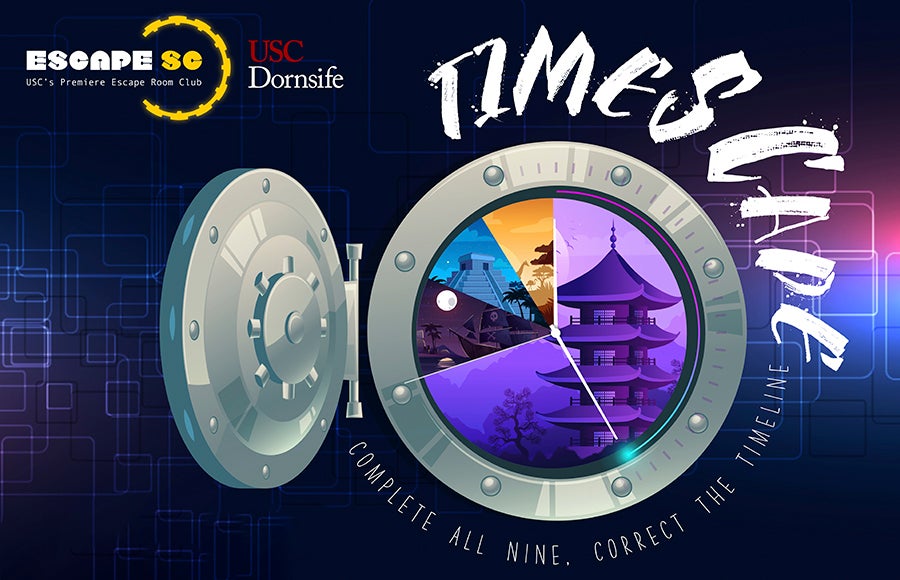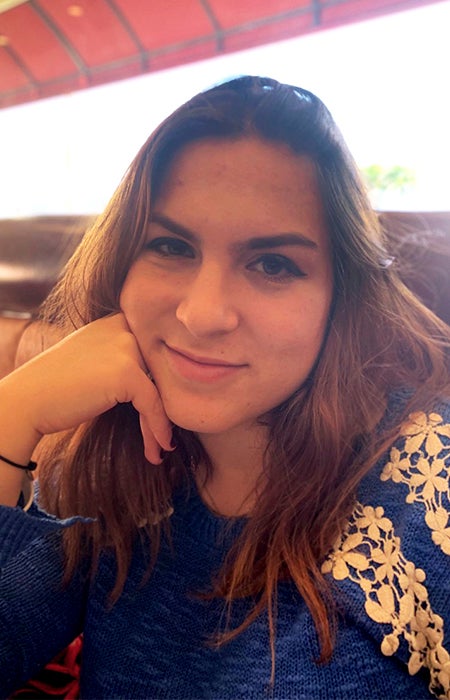
Dorm rooms go virtual in light of COVID-19
On a typical fall move-in day at the USC Dornsife College of Letters, Arts and Sciences, the dormitories at USC are abuzz with the sounds of thousands of students moving into their new homes. Trolley bins packed with boxes and bedding zip through the corridors as students hang posters, plug in computers and meet their roommates.
For many, like alumni Autumn Gupta and Bryanna Wallace, this day is the start of life-long friendships. The two met while roommates at USC, maintained their relationship after graduation and recently created a popular anti-racism resource hub together.
This year the rumbling echoes of trolley wheels were absent from the brick courtyards of the village. Campus was mostly closed due to the coronavirus pandemic and students were learning remotely, which meant many were home with family.
New undergraduates still got an opportunity to form friendships, however, thanks to the efforts of Courtney Byrd and Noel Viramontes, senior assistant directors at the USC Dornsife Office of Admissions. Hoping to replicate at least some of that freshman bonding, they organized a recent virtual roommates experience.
“We were really focused on how to help new students build community in a virtual environment,” explains Viramontes. Both were unsure the event would be a success. Would students even be interested in yet another online offering? Their fears were allayed when over 300 students signed up.
Escape together
Byrd and Viramontes organized three challenges for students: an online escape room, a competition to come up with solutions to a pressing societal issue and a game design challenge. Students were grouped into small “suites” of five or six to tackle their chosen experience.

For the online escape room, the two recruited Tammy Gorokhov, a physics and computer science major and a USC Dornsife ambassador, to help build the game. Gorokhov is a member of Escape SC, a USC club where students build and solve their own online and in-person escape rooms.
Online escape rooms take participants through a series of thematic puzzles. To honor the letters, arts and sciences of USC Dornsife, Gorokhov made the virtual roommates’ escape room history themed — with a twist.
“In 2080, a USC Dornsife professor of ‘digital archeology’ creates a time machine. In his process of trying to digitize artifacts, he kind of mixes them up. So, you go to the different time periods, solve the clues he left behind, find the artifact, and then at the end you have to match all the artifacts up to the right time period,” explains Gorokhov.

Each historical period has a pertinent puzzle. A World War II puzzle had participants make sense of a Turing machine, the precursor to the modern computer, using different codes to see which one passed the Turing test. From there, students were led to a Cold War-themed chess match.
“[Political figures] of the Cold War were different chess pieces. You had to figure out, based on who was able to attack who, which chess piece belonged to each figure in the Cold War,” Gorokhov said. Once that was determined, players made a word from the first letters of these names. That was a key word that led to a Russian political document.
After decoding a particular pattern of punctuation marks in the document, students extracted a phrase in Morse Code they entered into the next puzzle, and so forth on through history.
For Gorokhov, Escape SC has been her own avenue for making friends at USC. She’d always loved solving puzzles, so when she arrived at USC to find a whole club devoted to the subject, she immediately applied.
“I got in and it was probably the best decision I’ve made in college so far. Definitely one of the greatest groups of people I’ve ever met in my life,” says Gorokhov. She was happy to see several new students apply to the club after the virtual roommates event.
Friends IRL
Byrd and Viramontes’ careful structuring of the event, which encouraged a team approach and multiple meetings, also helped build connections among students.
“I think we formed friendships because, rather than being a one-time meeting, my roommates and I met up virtually more than once,” says Abeerah Siddiqui, an environmental studies major who was drawn to the virtual roommates experience by its unconventional activities. “We still have our group chat and occasionally message on there. Hopefully, we will get to meet each other in-person once we’re back on campus.”
Raymiro Gomez-Galiano, who is majoring in non-governmental organizations and social change, agrees. “I do believe friendships have been made. We networked, talked about our majors and feel as if we created a healthy environment. I’d definitely love to get to know these people more. I cannot wait to see myself four years from now and reminiscing about these times.”